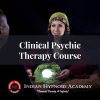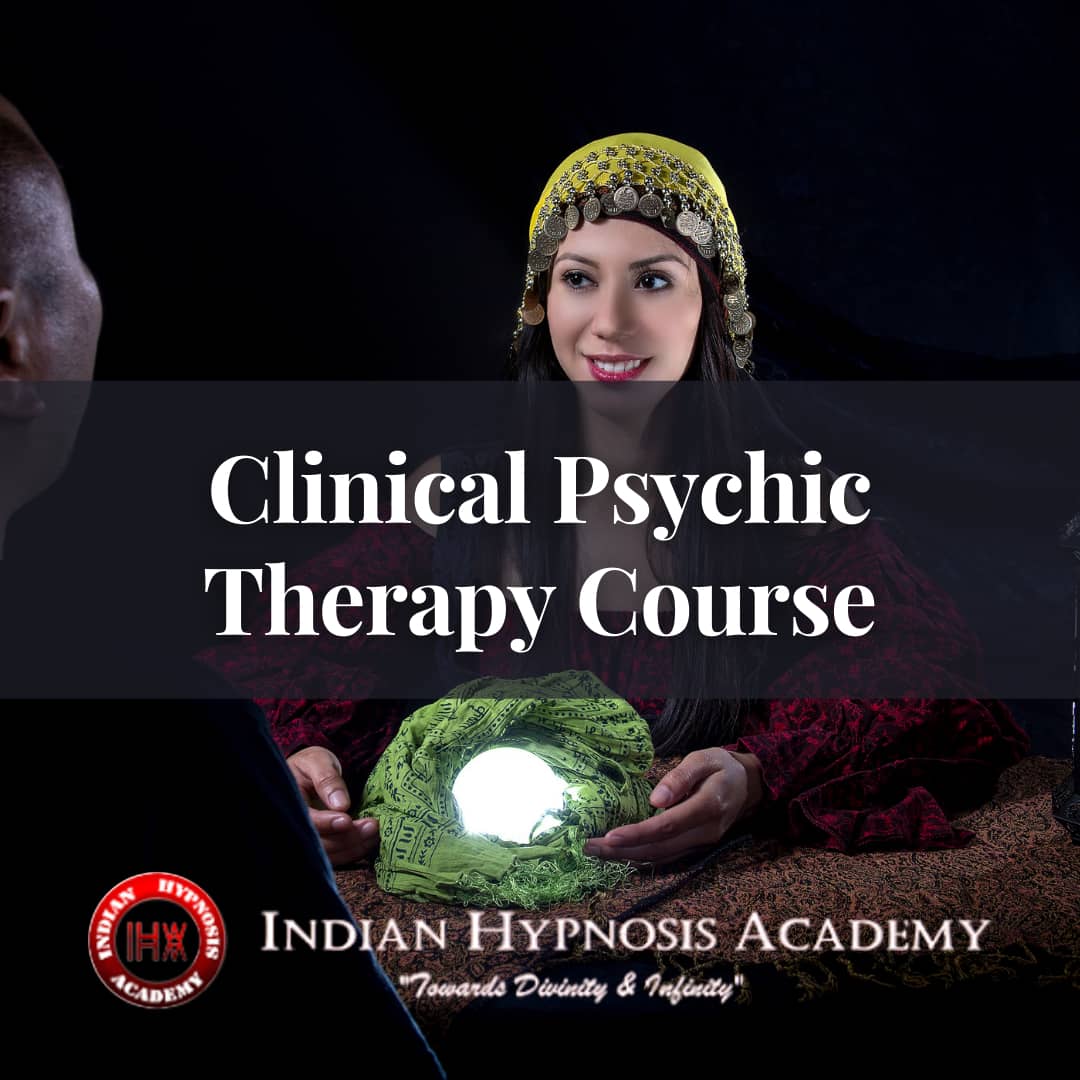ONLINE Clinical Psychic Therapy
Rs.15,000.00
* All payments made are non-refundable under any circumstances.
Description
DESCRIPTION
Duration: 3 Working Days
Amount: INR 15,000/- (With video coaching) – 18% GST Applicable
Description:
Psychic energy is a natural gift with every human being. But most people do not have the awareness to activate and use their psychic energies. The course provides information about structure of universe and physical & spiritual bodies of human beings. The students learn detailed information about chakras and aura. Healing and balancing of chakras, aura and different issues with psychic energy are taught in simple language. The students get the opportunity of activating their psychic energy and learn to use psychic power for different purposes like remote viewing, body scanning, scanning of the non-living, tele-messaging, etc.
Subject Matter of the Course:
- Introduction of Psychic Reading and Scanning
- Visualization Skills
- Body Awareness Techniques
- Chakras Balancing
- Aura Protection
- Psychic Stimulation
- Techniques of Psychic Reading and Healing
- How to create Psychic Protection
Scheme of the Course:
1. The students invest time in three modes, i.e., classroom sessions, reading and learning after the training course, and practicing the skill in the field.
2. Classroom studies include input sessions, demos, and practice sessions.
3. Debriefing is provided after each practice or demo session for clarification and consolidation of the concepts and processes.
4. The students are provided reading and learning material for further in-depth knowledge and understanding of concepts and processes.
5. The students are provided supervisory support to seek guidance for sharpening their skills while practicing independently in the field over a period of three months.
6. The students are helped to prepare a plan of action after the training classes.
7. The Academy makes online support available to the students for the stated period and beyond.
8. The Certification for all the courses will be awarded.
Through physical therapy also known as PT, trained professionals treat abnormal physical function related to disability, injury, or other health conditions.
Clinical physical therapy services provide alongside or related to other medical services.
These are performed by physical therapists, also known as the physiotherapists in some countries, thanks to other medical professionals.
What Clinical Physical Therapists Do?
According to the APTA (American Physical Therapy Association), physical therapists are licensed and trained movement experts.
They diagnose and treat a range of disabilities, injuries, and health conditions.
Professional licensed physical therapists work in a range of healthcare settings that include:
- Private practises
- Outpatient offices
- Hospitals, rehabilitation centres, nursing homes
- Sport and fitness settings, home health, hospices, schools, government agencies, occupational settings, hospices, and
- Research centres.
Physical therapists take care of patients in phases of healing from initial diagnosis to preventive and restorative stages of recovery.
A clinical physical therapy may be a standalone option that supports other treatments.
Some patients are referred to a physical therapist by a doctor, while some doctors offer therapy themselves.
According to the World Confederation for Physical Therapy, a physical therapist receives the training that allows them to:
- Conduct a physical exam and evaluation of a person’s movement, muscle and joint motion, flexibility, and performance that includes finding about the health history.
A health history that give a clinical diagnosis, prognosis, and plan of care with long and short-term goals which can perform physical therapy and interventions.
- Give self-management recommendations that include the exercises a person can do at home.
Clinical Physical Therapy Treatment
Apart from the physical manipulation, clinical physical therapy treatment includes:
Iontophoresis: To perform this, therapists use an electric current to deliver certain medications, like topical steroids. This decreases the presence of inflammation.
Electrical Stimulation (e-stim): There are two types of e-stim:
- Transcutaneous electrical nerves that stimulate that reduce pain.
- Neuromuscular electrical stimulation that stimulates the muscular motor units to improve muscular engagement.
Heat, Moist Heat, and Cold Therapy: It provides the benefits to various conditions.
Light Therapy: It involves using special lights and lasers to treat some medical conditions.
Conditions in Which Clinical Physical Therapy Helps
Physical therapists provide the supplementary treatment for a wide variety of medical conditions, depending on as per speciality.
Although physics therapists may not directly and independently treat the medical conditions apart from pursuing musculoskeletal condition, they work in optimizing recovery or educating a person on how to optimize its movement patterns.
Some conditions in which clinical physical therapy helps:
- Cardiopulmonary Conditions such as cystic fibrosis, chronic obstructive pulmonary diseases, and post-myocardial infarction heart failure.
- Conditions that affect the hand, like trigger finger musculoskeletal dysfunction, carpal tunnel syndrome, including the rotator cuff tears, back pain, and temporomandibular joint disorders
- Neurological conditions such as the stroke, spinal cord diseases. Multiple sclerosis, traumatic brain injuries, vestibular dysfunction, paediatric conditions, including muscular dystrophy sport-related injuries.
- Skin conditions or injuries such as wound care, diabetic ulcers, and burns.
Benefits of Physical Therapy
Depending on the treatment of clinical physical therapy treatment, benefits of physical therapy includes:
- Avoiding surgery
- Pain management with reduced need for opioids
- Improved mobility and movement
- Recovery from injury or trauma
- Recovery from stroke or paralysis
- Improved balances
- Fall prevention
- Management of age-related medical conditions
Physical therapists evaluate and record the progress of patients. They help the injured, or it will help people to improve movement and managing pain.
These are often an important part of rehabilitation, preventive care, rehabilitation, and treatment of patients with illness, injuries, or chronic conditions.
Clinical physical therapy can be very beneficial for people with certain disabilities, injuries, or other health conditions.
For more information on the benefits of physical therapy, a person should ask a physical therapist or any other healthcare professional.






Reviews
There are no reviews yet.